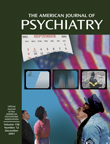Fragments, Benjamin Wilkomirski’s Holocaust memoir about his life as a child in a concentration camp, won acclamation when it was published. Unfortunately, it turned out that Wilkomirski had spent his childhood with foster parents in Switzerland. When confronted with the documented facts, he still insisted his recollections were real. “Is Wilkomirski simply a liar?” asks Daniel Schacter, who describes the incident in his new book on memory. Schacter’s answer is, Probably not; he is forgiving because he finds there is compelling evidence that we are all prone to some level of such distortion. Schacter is Chairman of the Harvard Department of Psychology and one of the leading authorities on memory. Memory’s imperfection is the subject of this his second book distilling memory research for the general reader. His inspiration was the idea that the imperfections of memory could be described as the seven “deadly” sins: transience, absent-mindedness, blocking, misattribution, suggestibility, bias, and persistence.
Memory research is important if painful reading for the generations of psychiatrists who were trained to help patients sort out their past, to “reconstruct” childhood experience, to work through their repression, and get to the reality of lived experience. Schacter’s account of the research makes it impossible to believe any of this is humanly possible—at least if one thinks the purpose of such efforts is to get to the definitive truth of the matter and not just to create an aesthetically satisfying narrative of the self.
Schacter’s account of the research on memory makes it clear there is no accurate videotape, no carefully kept files, no part of the brain that contains the original photographs in mint condition. There is no reason to expect that we and our patients can somehow overcome the seven sins.
Schacter is clearly writing for the general audience, those aging baby boomers who are beginning to recognize the sins of their own memories, and they are lining up to buy this book. Schacter is not a physician, but he has a natural bedside manner. He explains and reassures his readers at the same time. He is at his best summarizing dry academic research and extracting the relevant kernel of useful information.
In the last chapter of his book Schacter speculates about the sins of memory from an evolutionary perspective. This will probably give his readers a sense of closure, but to my mind it is the least successful part of this superb book. That one chapter could have been written by a science writer rather than by a scientist who also happens to be a wonderful writer. Still, I enthusiastically recommend this book to every psychiatrist; like all of the best books in psychology, this book will leave you with a new understanding of yourself, your patients, and the human mind.

